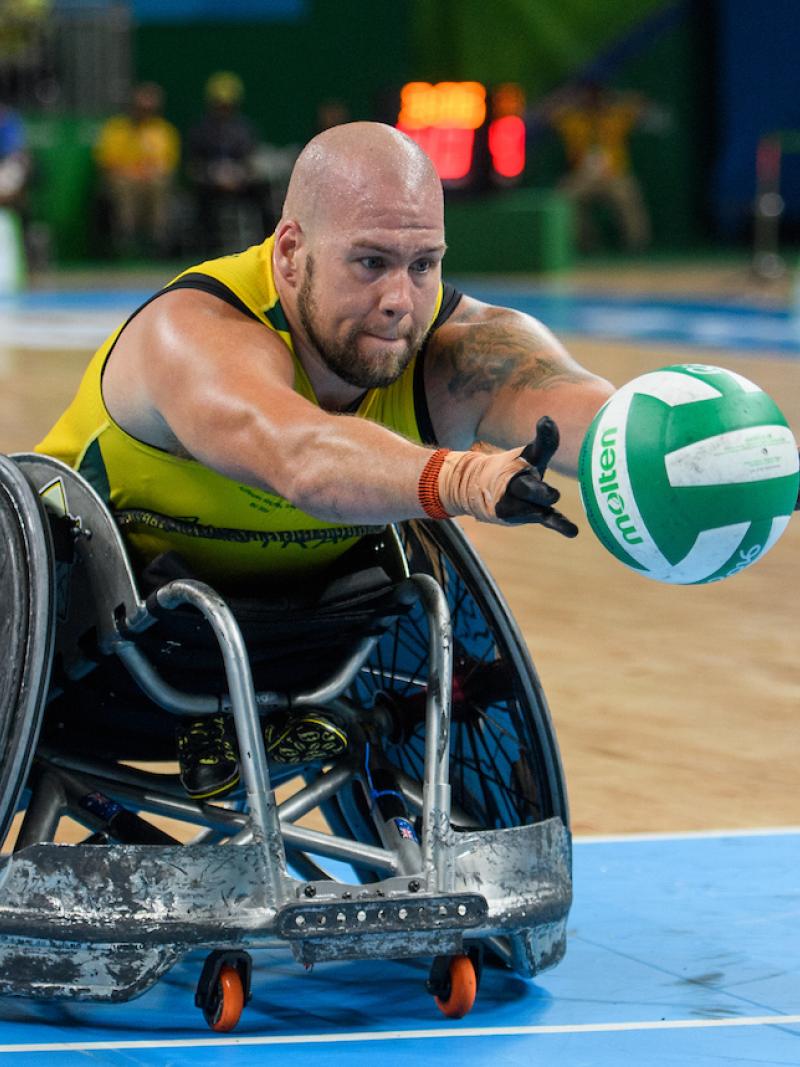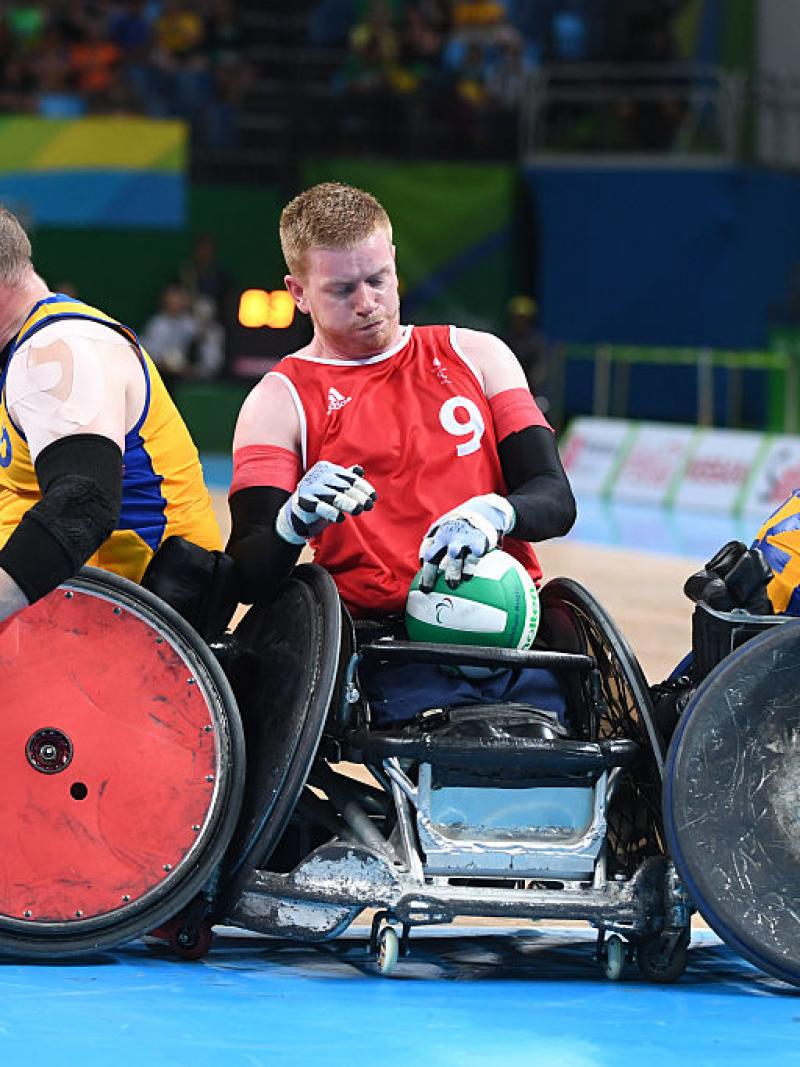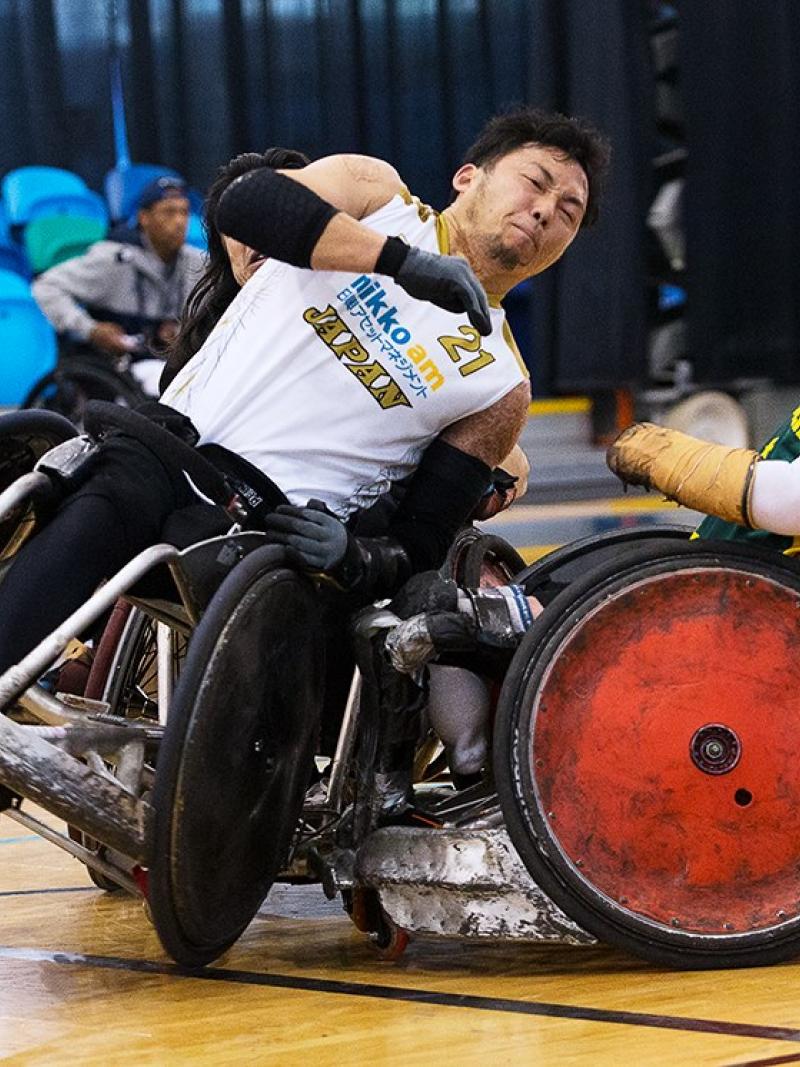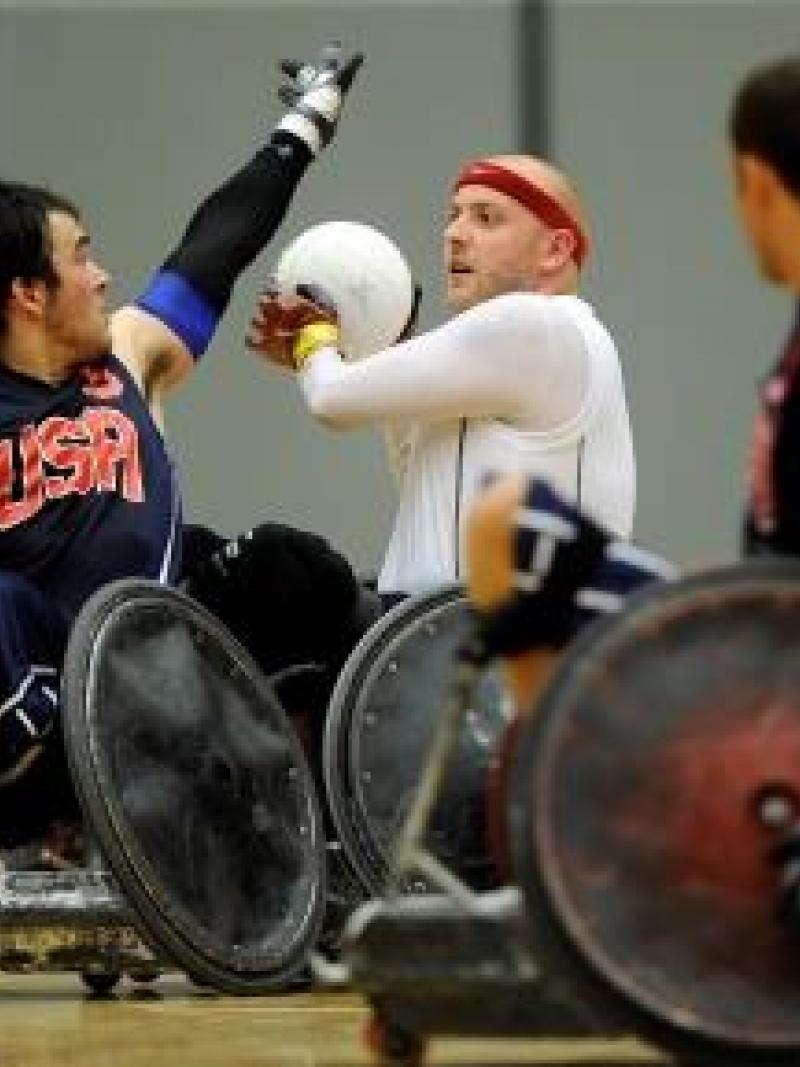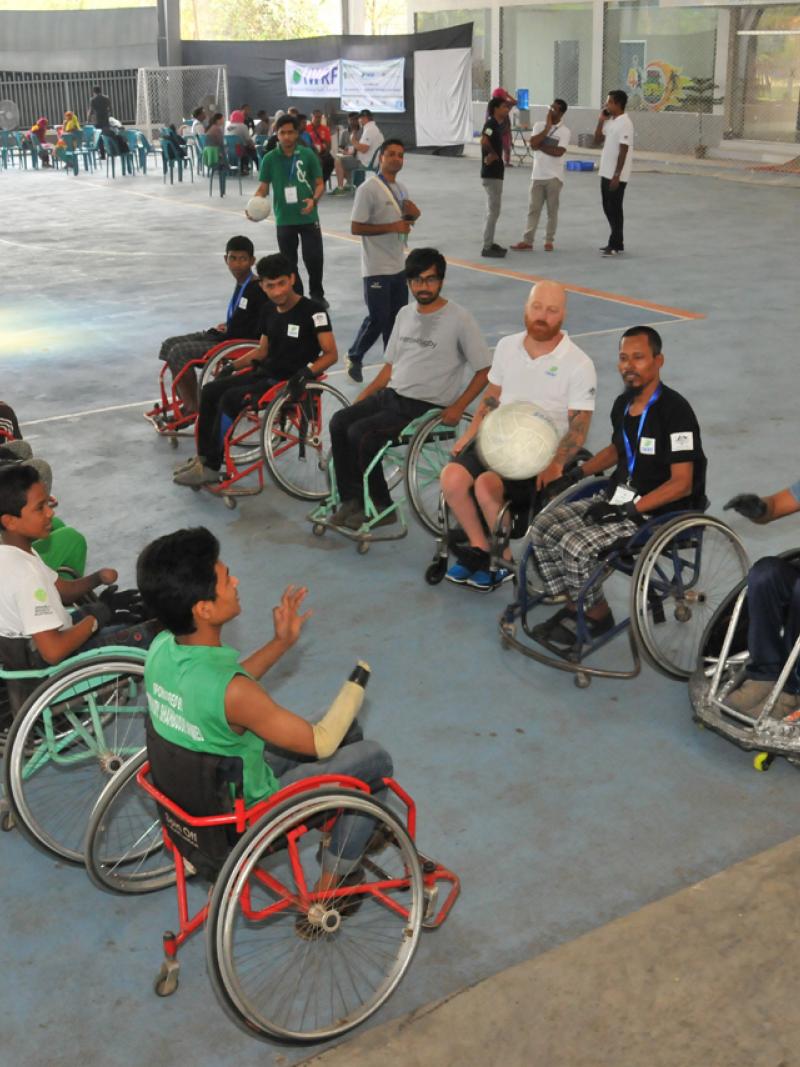Funding cuts not squashing Roberts’ European title hopes
The British wheelchair rugby team will try to defend their title in Koblenz despite recent challenges. 24 May 2017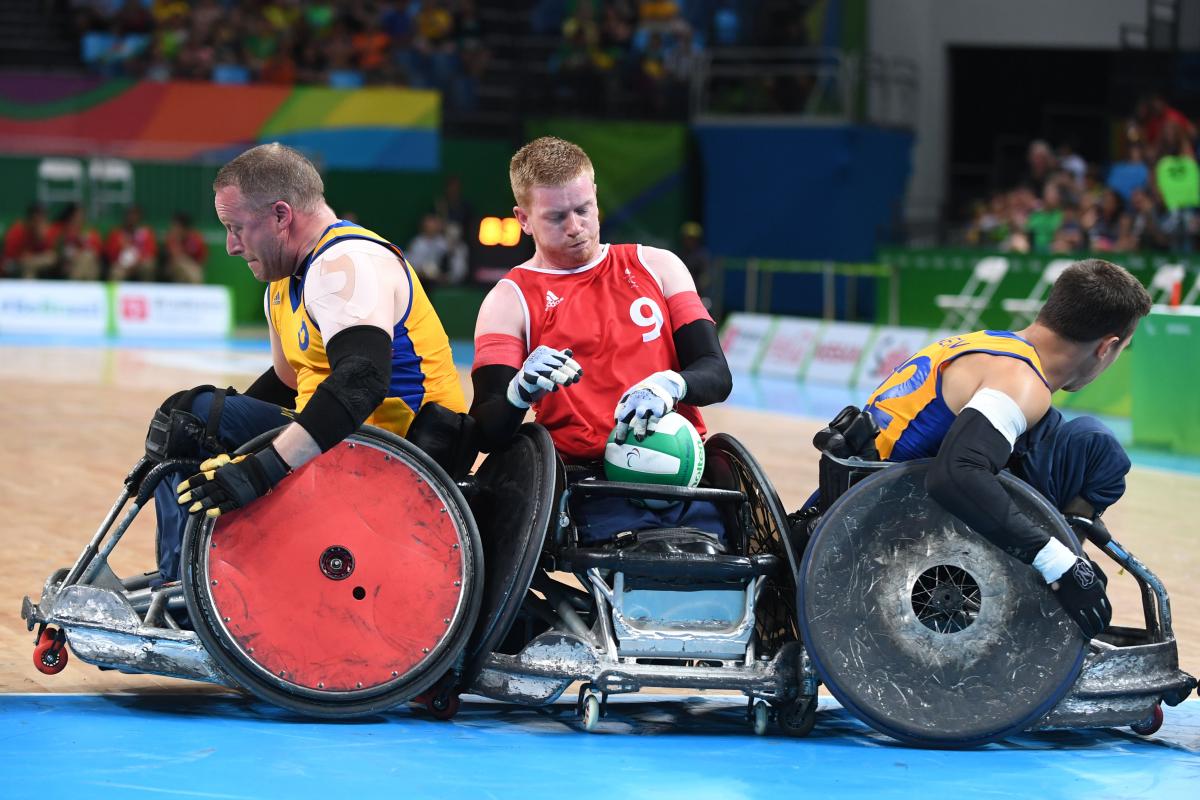
Jim Roberts of Great Britain in action in the wheelchair rugby 5th-6th classification on day 10 of the Rio 2016 Paralympic Games at on September 17, 2016 in Rio de Janeiro, Brazil. (Photo by Atsushi Tomura/Getty Images for Tokyo 2020)
“As long as we stick to our game plans and perform to the standard that we know we're capable of, then we stand a good chance of retaining our title"
Great Britain’s James Roberts is confident his team can defend their title at the 2017 International Wheelchair Rugby Federation (IWRF) European Division A Championship in two months’ time in Koblenz, Germany, despite funding cuts and loss of key veterans.
“Other teams will definitely be trying to take that [No. 1] spot from us, but we'll go in to the tournament with the same attitude that we would approach any major competition with,” Roberts said. “As long as we stick to our game plans and perform to the standard that we know we're capable of, then we stand a good chance of retaining our title.”
The British team are experiencing one of their most challenging periods in recent history. Funding for its programme has been significantly stripped back, making it difficult for athletes to train full-time and cover the costs, whilst key veterans Mike Kerr, Alan Ash, Bulbul Hussain and Mandip Sehmi have all retired.
Still, Roberts is confident in the group they have heading to the Championship, held 24 June – 2 July.
“There's a good core group of players that are pushing the team in the right direction and looking to build on how much we've developed over the last four years,” Roberts said.
“We will have less training camps in preparation for Europeans than we have had for previous major competitions and we've lost a number of key services such as strength and conditioning coaching,” he said. “There's a lot of things that really do help you become a well-rounded athlete that we now have to find our own way with a bit more.”
Jonathan Coggan is the only player with more than one Paralympic Games experience. But several players return from the Rio 2016 team that finished fifth, the highest among the other two European teams.
However, other teams could show how far their programmes have developed in Koblenz.
“The whole standard of wheelchair rugby is improving massively especially in Europe,” Roberts said.
“We have Denmark in our pool and we always seem to have close competitive games with them.
“On recent form in club tournaments, France look to be playing well at the moment.
“I would never count Sweden out, they've had some players retire since Rio, but they are an extremely smart team and always show up at Europeans, but it really will depend on who wants it most on the day.”
Roberts is remaining realistic and admits he does not know what will happen to the team after the 2017 Europeans. But for now, another title is the focus.
“Without a funded programme there are a number of players that just won't be able to continue to play the sport, myself included,” Roberts said.
“So at the moment, I'm hoping that we find a way to fund the programme and then I'll start looking a little further down the road.”
Great Britain was drawn in Pool B to face Denmark, Poland and Ireland, while Sweden, France, Finland and Germany make up Pool A.
The tournament is a direct qualifier for the 2018 World Championship, with the top four teams securing spots at Worlds.
Teams finishing outside the top four will still have a chance to qualify through the World Championship qualification tournament, held in early 2018.

 Facebook
Facebook
 Instagram
Instagram
 Twitter
Twitter
 Youtube
Youtube
 TikTok
TikTok
 Newsletter Subscribe
Newsletter Subscribe

